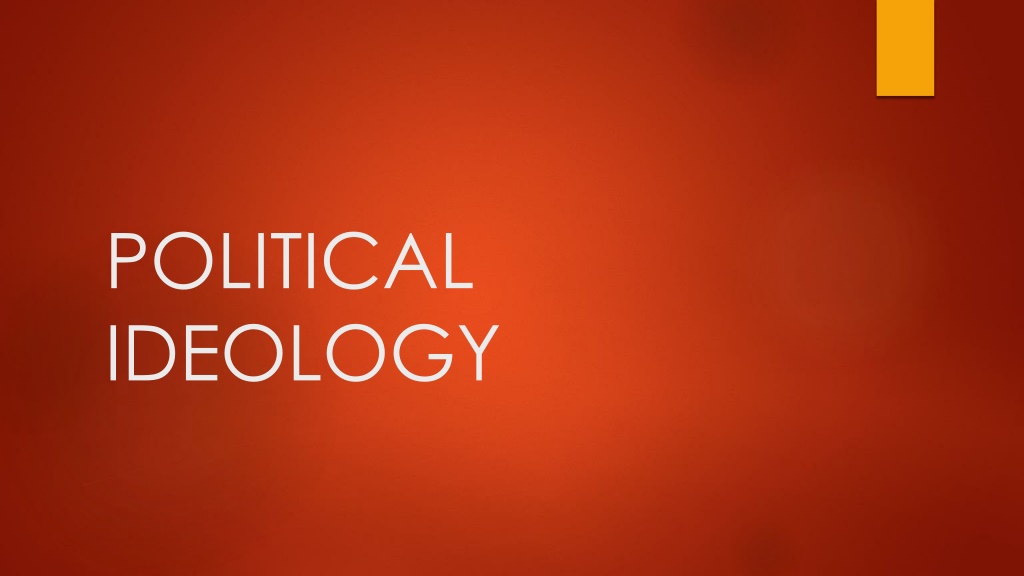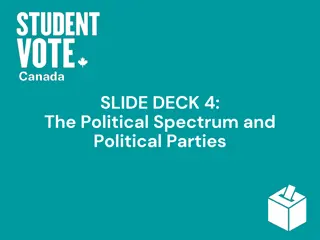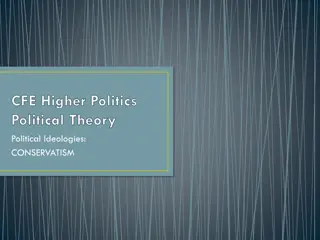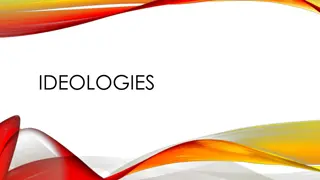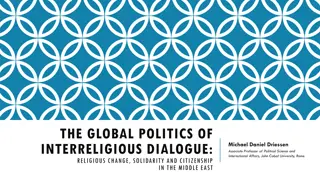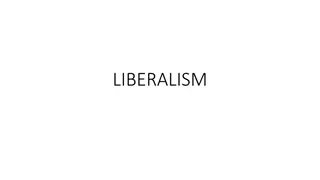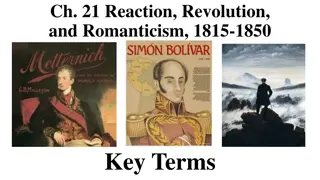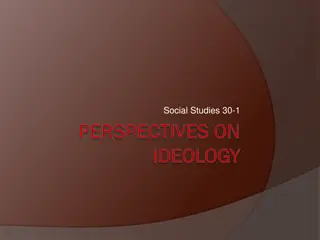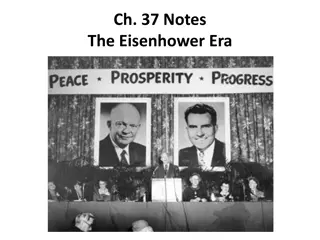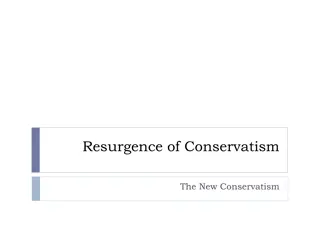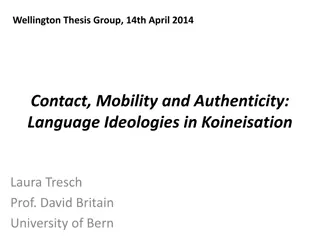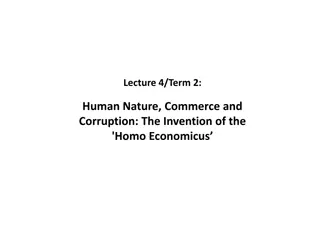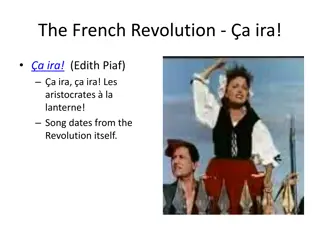Understanding Political Ideologies: Liberalism and Conservatism Explained
Political ideologies shape beliefs about the role of government and societal balance between the public and private sectors. Liberalism focuses on individual liberty and government intervention for equality, while conservatism emphasizes limited government, traditional values, and free markets. Psychological differences and views of authority also influence ideological leanings.
Download Presentation

Please find below an Image/Link to download the presentation.
The content on the website is provided AS IS for your information and personal use only. It may not be sold, licensed, or shared on other websites without obtaining consent from the author. Download presentation by click this link. If you encounter any issues during the download, it is possible that the publisher has removed the file from their server.
E N D
Presentation Transcript
POLITICAL IDEOLOGY
Political Ideology Coherent belief system/philosophy about: politics role of government Especially concerned with balance between: public sector private sector Identity Most Americans self-identify as: Conservative, moderate, or liberal (few socialists or fascists)
What Is Liberalism? Classic liberalism 18th-19thcentury referred to those who supported a limited system of self-government based on the principle of individual liberty John Locke, T. Jefferson Declaration of Independence, Constitution, Bill of Rights Both modern American liberalism and modern conservatism have roots in classic liberalism
Modern Liberalism Progressive era saw the emergence of modern liberalism Promotes regulation of capitalism Government has a positive role to play Creates: equal opportunities Addresses racial, ethnic, and gender inequalities Associated with FDR, ML King, See NY Times editorial pages, Progressive, The Nation
What is Conservatism? Favors limited government and private property rights. Emphasis on law and order Family traditional gender roles Religion free market economics individualism
Conservatism Continued Fear that US has become Secular Permissive Lacking in personal responsibility Over-regulated. Examples: Ronald Reagan, Donald Trump? See Wall Street Journal editorial page, National Review, Commentary Magazine
Psychological Differences Conservatives (tend to be/have) more . . . active amygdalas a brain structure responsible for fear response squeamish about impure things (germs, vomit, feces) methodical in problem solving iberals more likely to rely upon aha moments requiring new insights. emphasis on self control and honor liberals on optimism and compassion
Different Views of Authority Strict Father Nurturing Parent
Democratic Socialism Views most Democrats and Republicans as beholden to moneyed interests (Wall Street, big donors, major corporations) Socialism by democratic means (winning elections) not by revolution Political agenda Scandinavian-style welfare state with high taxes and universal government services (paid maternity and paternity leave, guaranteed minimum income, universal health care, free university education) See Mother Jones Magazine
Where Would You Place Yourself Ideologically?
Americans Ideologically More Conservative
But Programmatically More Liberal
Partisan Polarization Defined as the increasing ideological division between Democrats and Republicans Ideological sorting by party public at large isn t much more divided than in the past Conservative Southern wing of the Democratic party has shifted over to Republican party Conservative Republicans are purging RINOs from party
Ideological Sorting In Congress
Residential Sorting People increasingly moving to communities with like-minded neighbors Blue vs. red America; urban vs. rural America
Other Ideologies--Libertarianism Support: unrestrained individual liberty property rights much more limited government. tax cuts reductions in regulations expansion of markets reductions in US military
Other IdeologiesThe Alt Right Reject establishment conservatives as sell outs Attack calls for multiculturalism, political correctness, and social justice White identity movement, calling for defense of western civilization, myth of white genocide. Anti-immigrant and anti-Muslim Connections with KKK and anti-semitic movement
Review Ideology refers to a coherent belief system concerning politics. Most Americans are on the liberal-conservative spectrum, which has its roots in classic liberalism Most Americans hold ideologically inconsistent attitudes. It s mostly elites who think about politics ideologically American politics has become more ideologically polarized as conservatives have moved out of the Democratic party and liberals out of the Republican party Other American political ideologies include democratic socialism, libertarianism, and the alt-right.
